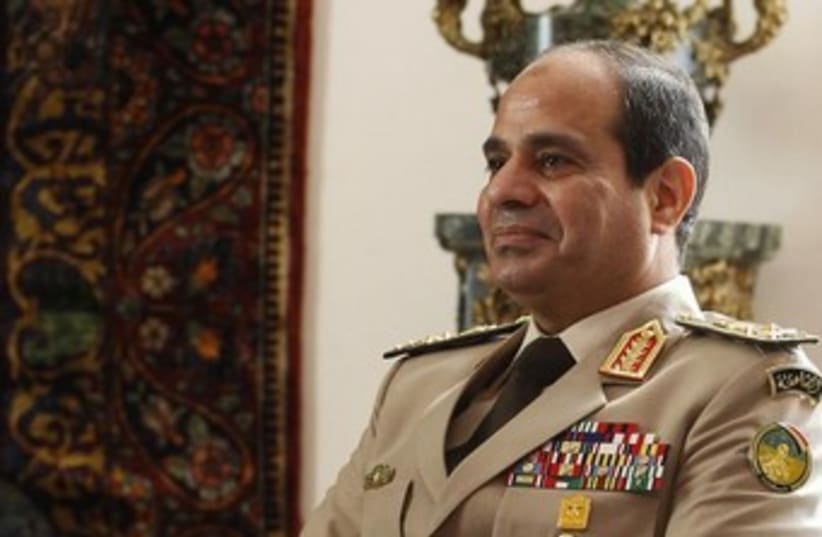The Egyptian constitutional referendum brings back memories of past Arab elections where the ruling regime gained close to 99 percent of the vote.Even though the Muslim Brotherhood and other Islamist groups boycotted the referendum, such lopsided results probably resulted from an unfair vote. This shows there is almost no question that Gen. Abdel Fattah al-Sisi will continue to lead, probably as president.In addition, US-Egypt relations are probably headed back to what they were during the reign of ousted president Hosni Mubarak.
Reports that the US was unfreezing aid indicate it will accept the regime’s legitimacy – though, as in the past, calls for more democracy and human rights will continue.“If the Brotherhood and some Salafis did not boycott the election they could have got only around 20-25% of the vote,” said Zvi Mazel, who served as Israel’s sixth ambassador to Egypt and today is a fellow at the Jerusalem Center for Public Affairs and a contributor to The Jerusalem Post.Even though the referendum results do not look good, Mazel continued, “we should also remember that the Salafi political party Al-Nour and its mother movement, Al-Dawa Al-Salafia, voted yes.But above all it was a vote of confidence to Sisi, the people asking him to present his candidacy to the presidency and work to stabilize Egypt after three chaotic years.”Sisi has said he is waiting for the people to call for him to run, and that is how the referendum is likely to be interpreted, Mazel asserted.“We probably are going to see Sisi as president,” he said.As to what a Sisi presidency would mean for Israel, the former ambassador responded: “In time, the new regime may seek rapprochement toward Israel, but quietly at the beginning.”Egyptian society and the country’s Muslim establishment remain ardent opponents of Israel, so Sisi has to take that into consideration, he continued. After the regime is able to stabilize the domestic situation, then, perhaps, Egypt will try to promote economic cooperation with the Jewish state.Prof. Efraim Karsh, a Middle East and Mediterranean studies scholar at London’s King’s College who recently joined the Begin-Sadat Center for Strategic Studies (BESA) at Bar-Ilan University, told the Post that the Egyptian army will try to hold onto power, just like the regime of Gamal Abdel Nasser did starting in 1952.A strong nationalist leader of the Free Officers Movement, Nasser overthrew King Farouk and moved to abolish the constitutional monarchy, leading to a series of dictators who came from the army as well.Sisi is a devout Muslim, and the undercurrent of Islam in the region is still swaying the political order, said Karsh, predicting that “sooner or later it will come up again – another blow-up.”The Egyptian regime will do its best to keep the Islamists at bay, he added.“If [ousted president Mohamed] Morsi was more intelligent, like Turkish Prime Minister [Recep Tayyip] Erdogan, he would still be in power,” Karsh said.He said he believed there would be no real democracy soon in Egypt or the larger Arab world, but that various forms of dictatorships will predominate.Analysis: A lopsided election victory
Even though the Muslim Brotherhood and other Islamist groups boycotted the referendum, such lopsided results probably resulted from an unfair vote
